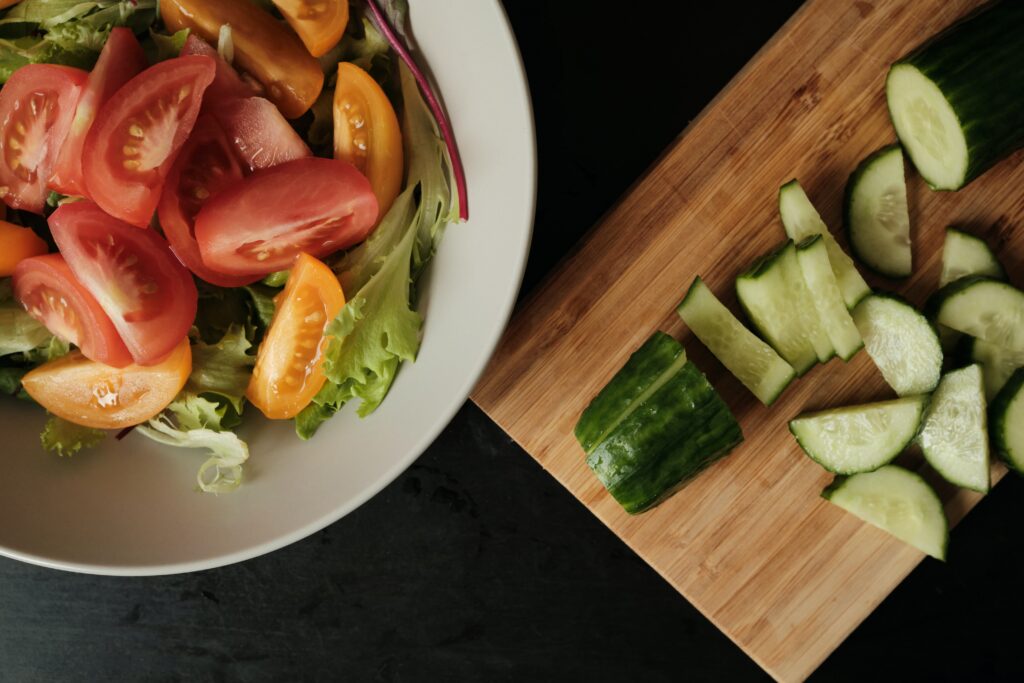How do you know when you should bulk vs. when you should cut?
Are you a healthy body weight? What are your long term goals? Are you training for an event, or gene...
| July 13, 2021
Warning: Undefined variable $post in /home/u355111447/domains/wellnessadept.com/public_html/wp-content/plugins/oxygen/component-framework/components/classes/code-block.class.php(115) : eval()'d code on line 3
Warning: Attempt to read property "ID" on null in /home/u355111447/domains/wellnessadept.com/public_html/wp-content/plugins/oxygen/component-framework/components/classes/code-block.class.php(115) : eval()'d code on line 3
Read time: 3 min.

There’s been more and more interest in following a vegan diet as of late, which is great! Anything that gets the conversation flowing about nutrition is always a wonderful thing. That being said there are a few considerations that need attention before transitioning to a vegan.
Protein Intake
Transitioning to a vegan this is the top hated question among vegans, but it does merit a discussion. The minimum protein requirement is set to 0.8g/kg of lean body mass, however, vegans should aim for more. Why?
When you’re following a vegan diet your protein is coming mostly from incomplete protein sources. This just means that you’re not necessarily getting all of your essential amino acids throughout your day. If you’re low on some essential amino acids your body can’t accomplish some of its daily tasks, which is why they’re labelled ‘essential.’ Your non-essential amino acids are labelled ‘nonessential,’ because your body can manufacture them out of some of the essential amino acids you’re taking.
I generally set my vegan clients protein intake to 2g/kg of lean body mass, and that’s just to start. Some of my favourite protein sources to work in are: vegan protein powder, seitan, tempeh, beans, hemp hearts, tofu, and other trace amounts of protein through nuts and seeds. The biggest challenge with vegan diet protein sources is that they often contain a lot of fats and carbs as well. This isn’t a bad thing, it’s just an added challenge for balancing a vegan’s macronutrient split. With animal based proteins they typically contain trace amounts of carbs and fats, making it easier to balance someone’s macros. This is also why the vegan diet, left unchecked, is often lower protein and higher carb/fat.
Supplementation
Many people believe that if you eat whole foods, you don’t need to supplement. I would caution against this mentality, especially for the vegan diet. It’s super challenging to balance a vegan’s micronutrient needs. It’s possible, but difficult. If you don’t want to live a life of religious tracking, there are a few supplements I would recommend taking.
Junk Vegan Food
Just because something is labelled vegan, does NOT mean it’s healthy. Processed food is processed food. Steer clear from the beyond meat burgers, soy hot dogs, soy sausages etc. These are OK to have in moderation, but you don’t want the majority of your protein to come from these sources. Whole foods always win out!
While everyone is different, these tips would be helpful for anyone looking to try out the vegan diet. Sometimes you can do everything right, and yet the vegan diet may still not be optimal for you. The most common example would be someone who experiences a lot of digestion concerns. If you’re in an active flare up with Crohn’s Disease or Ulcerative Colitis, the vegan diet is not a great idea. The fiber content alone will aggravate your colon further, and along with the decreased ability to absorb nutrients, you’ll be in rough shape. At the end of the day, there is no single diet that is appropriate for everyone. Try the vegan diet out, and periodically check in with yourself. How do you feel? How’s your energy? How’s your mood? How’s your digestion? These are preliminary questions, and keep in mind that a style of eating could work for you in phases, but long term might make you feel less than optimal. Remain flexible in mindset, and you’ll do well!
New articles, content with tips, inspiration, and coaching directly to your inbox.